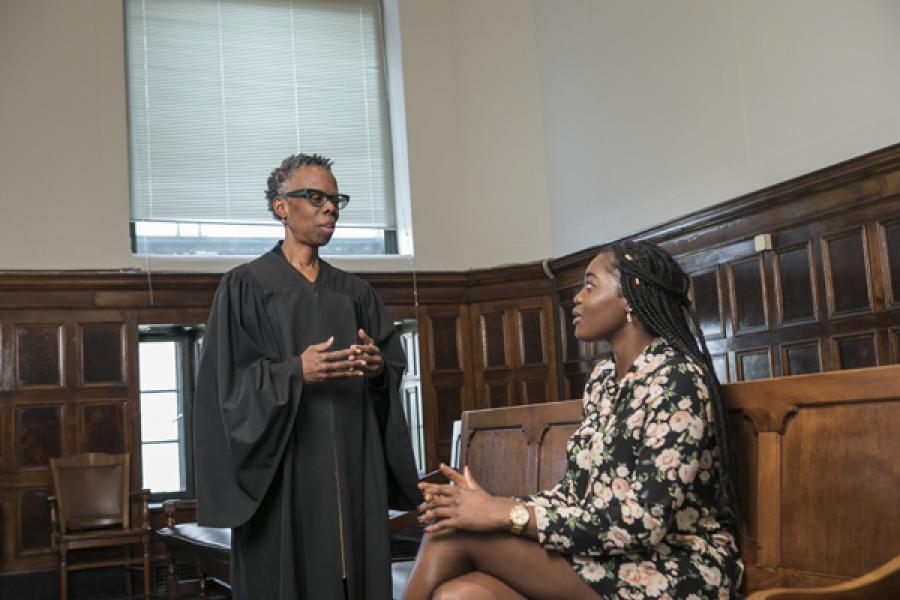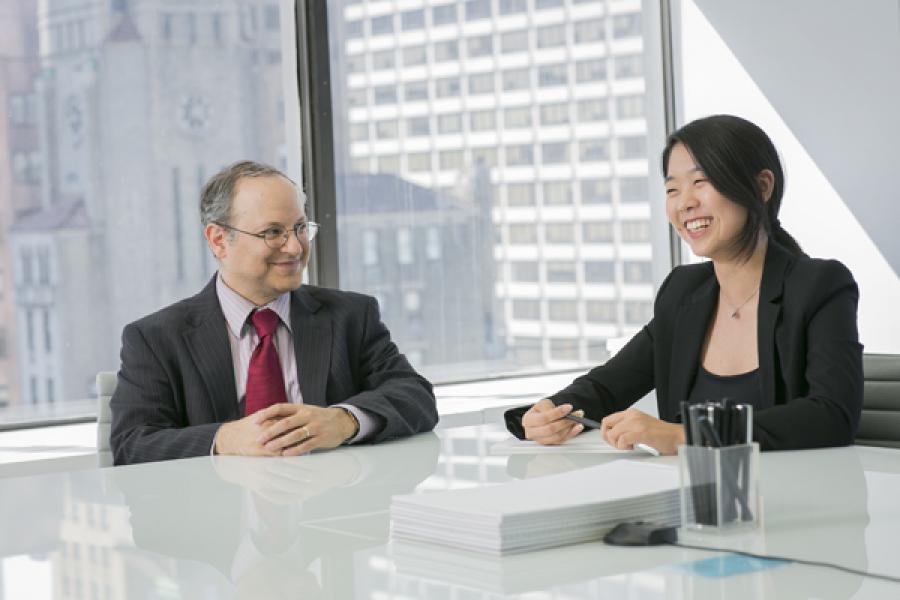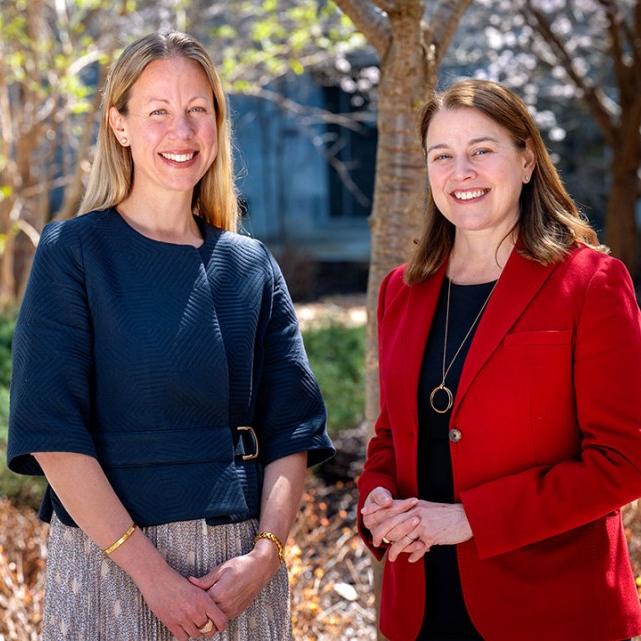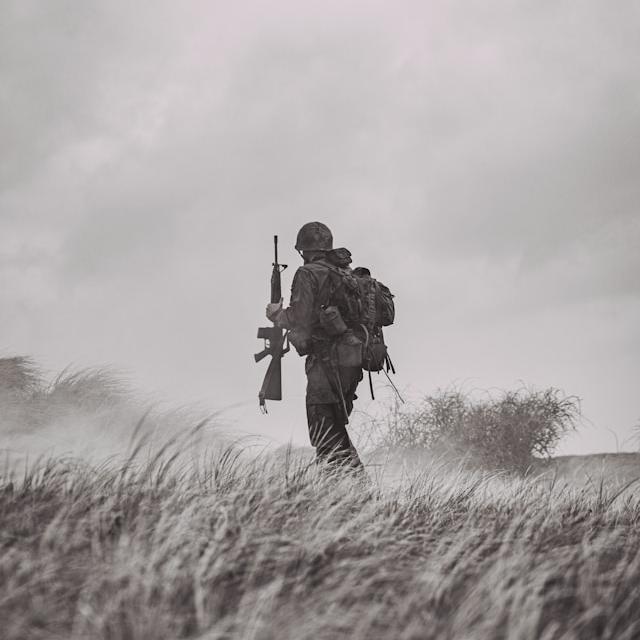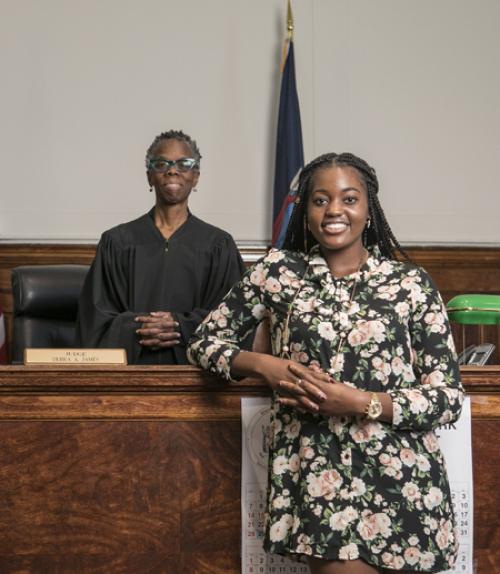In a wood-paneled courtroom in New York City, Nadia Udochi ’20 sits at one of the lawyer’s tables, head bent over a stack of papers. Law clerk Mark McGowan is showing her how a case is organized, beginning with a lawsuit and an answer, then moving through the process of discovery and resulting in motions, hearings, a jury or bench trial and a decision.
As Udochi works, she can look directly at the bench that’s normally occupied by her summer mentor, New York State Supreme Court Justice Debra James’ ’75, J.D. ’78. On days when the judge has trials, Udochi sits in the back, observing the attorneys and taking notes.
“I told my mom when I was in fifth grade that I wanted to be a supreme court justice,” Udochi says with a laugh, clearly thrilled with this summer internship opportunity. “I want to be able to use my law degree for something important.”
Udochi, a government major who is minoring in law and society and inequality studies, is taking Cornell’s Prelaw Program in New York City, offered through the School of Continuing Education and Summer Sessions, which includes a three-week class led by C. Evan Stewart ’74, J.D. ‘77, followed by an internship. Students in the program come from Cornell, as well as other universities in the U.S. and abroad.
Although Udochi changed her mind a while ago about being a judge, she is still passionate about the law and is considering a career that melds law with business. She said the summer program is helping her learn more about the rigors of law school and about the variety of careers available to lawyers.
At Cornell, Udochi is a fellow of Pi Lambda Sigma (POLIS) Pre-Government Society and an officer in the Black Ivy Pre-Law Society. She’s also taken an introductory course at the law school and a law and literature class, which she says prepared her for the work in Stewart’s summer class — kind of.
“I’m already being taught by the best in the field,” she says. “And although I know nothing prepares you for law school, I’ve already heard about the most important cases in the history of law, so I feel like I’ll be a step ahead.”
Stewart, a senior partner of Cohen & Gresser LLP, has been leading the program for the past 13 years and believes in using the Socratic method, calling on random students in each class and asking them specific details about the case they read the night before, as well as other cases they’ve studied.
“A lot of students come to class thinking they understood what they read, but in class we deconstruct the readings and talk about what they should have taken away,” Stewart said. “Often that results in a very different understanding.”
Stewart also includes discussions about the demands of a law career and legal ethics.
“Some students have a very idealized view of what a lawyer does,” he said, “so I try to provide a reality check for them.”
Jaewon Baek ’20, said Stewart’s class, though rigorous, has made her even more committed to studying law.
“You can see how much he loves being a lawyer,” she said about Stewart, adding that the skills she’s learned this summer — reading, understanding and summarizing complicated cases — will surely help her in future coursework.
Baek’s internship is with Cohen & Gresser, Stewart’s firm, though she is supervised by Daniel Tabak, another partner in the firm.
“He makes sure that I get a full, well-rounded experience by connecting me to lawyers from a wide range of areas in the law, and schedules opportunities for me to go beyond the firm to observe law in action,” Baek said. “He keeps his door open should I ever have any questions, and checks in every so often to ensure that I am maximizing my time at the firm.”
At her internship, Baek, a philosophy major, has worked on research projects related to cryptocurrency, observed a company bankruptcy proceeding and read through various complaints and documents that will be used as evidence in upcoming cases at the firm, which represents clients in a number of areas including financial services, employment law, privacy, security and intellectual property & technology.
Tabak said he enjoys having interns and teaching them how lawyers prepare for cases, either by polishing their arguments, being able to defend the weakest parts of their case or researching the law and facts.
Likewise, during her internship experience, James has offered Udochi the opportunity to watch skilled lawyers in action, as well as schooled her in the structure and operations of New York’s court system and the three branches of government.
“There’s a thought that young people aren’t learning enough about civics,” James said. “It’s important to have a sense of how the government is organized.”
James, who has hosted interns as part of the program for more than a decade, said the summer program offers them a chance to think critically about a law career before they commit to the expense and effort of law school.
All of the intern hosts say the infusion of new energy in their offices is welcome during the summer.
“Young people bring enthusiasm to the office,” James said. “Sometimes you get a little jaded, but when we have this fresh outlook on what we do, it energizes us.”

